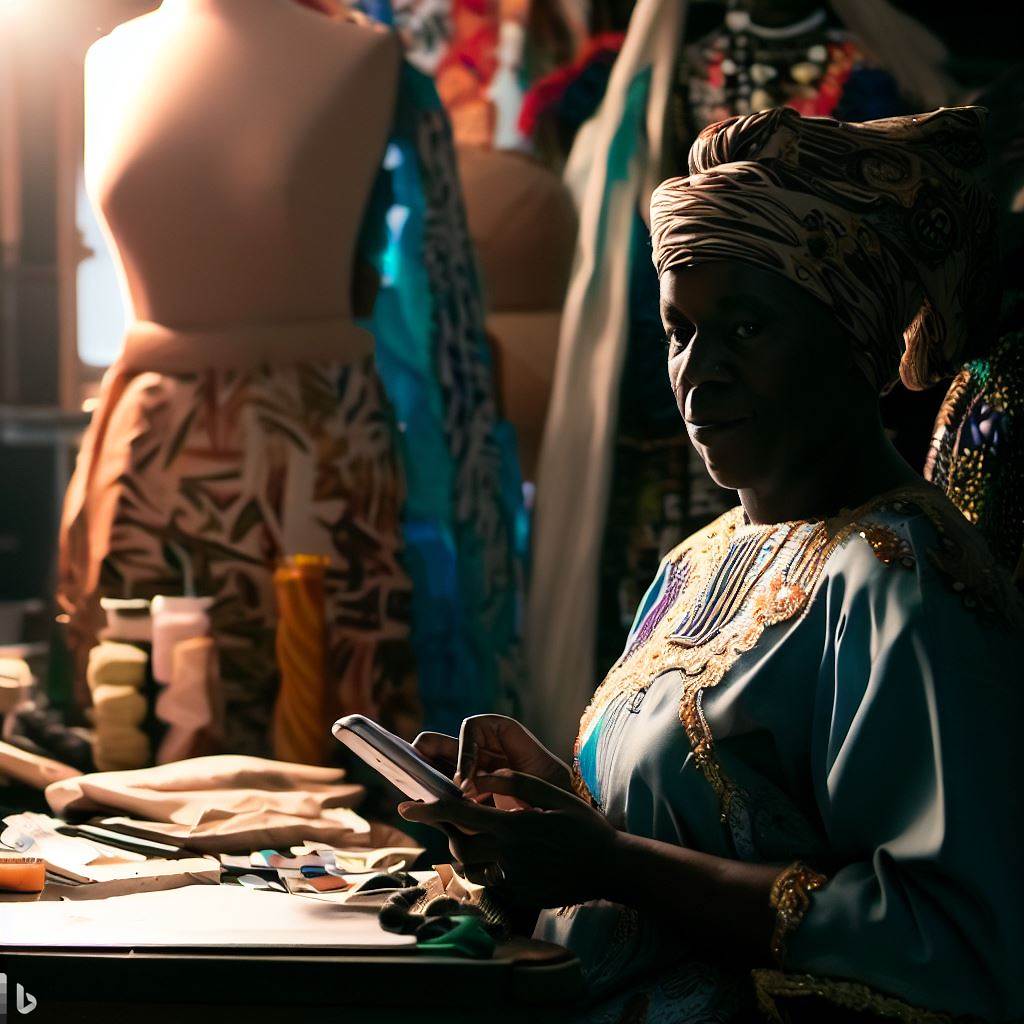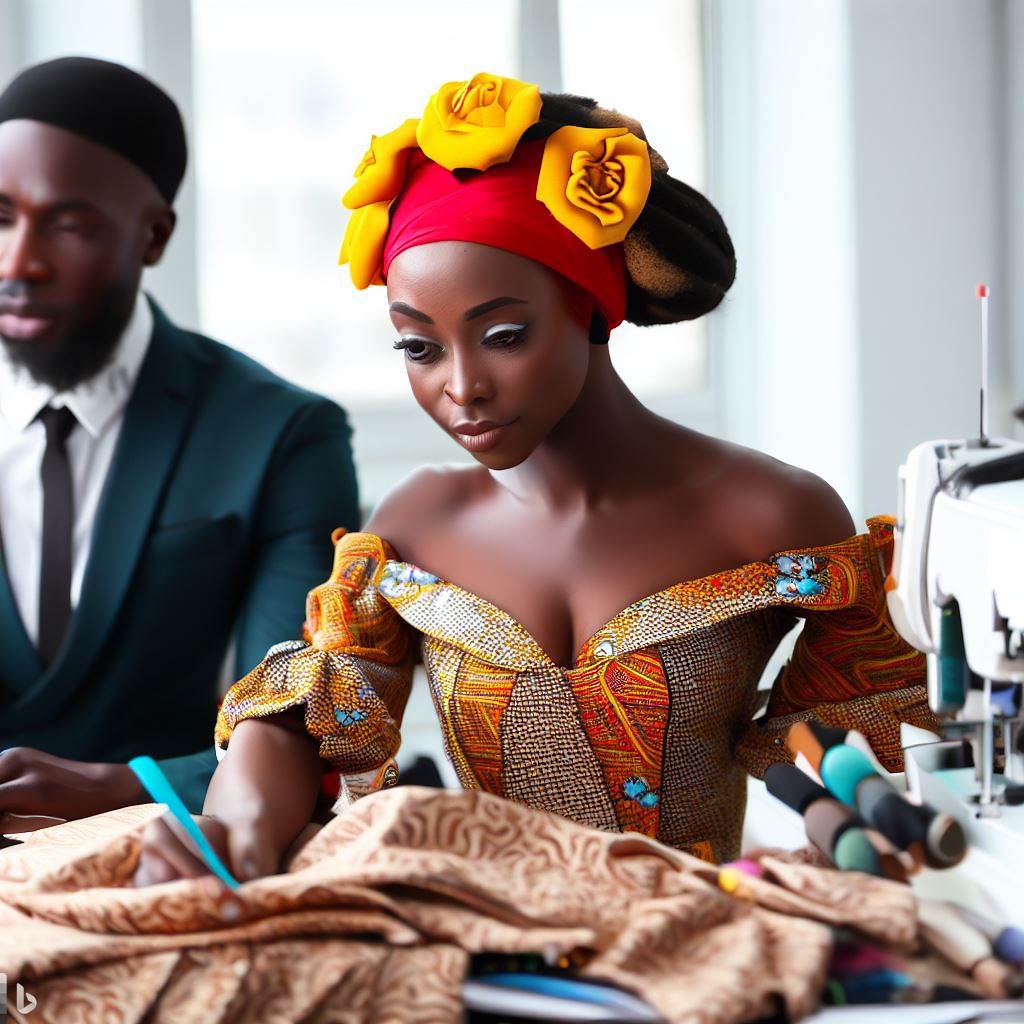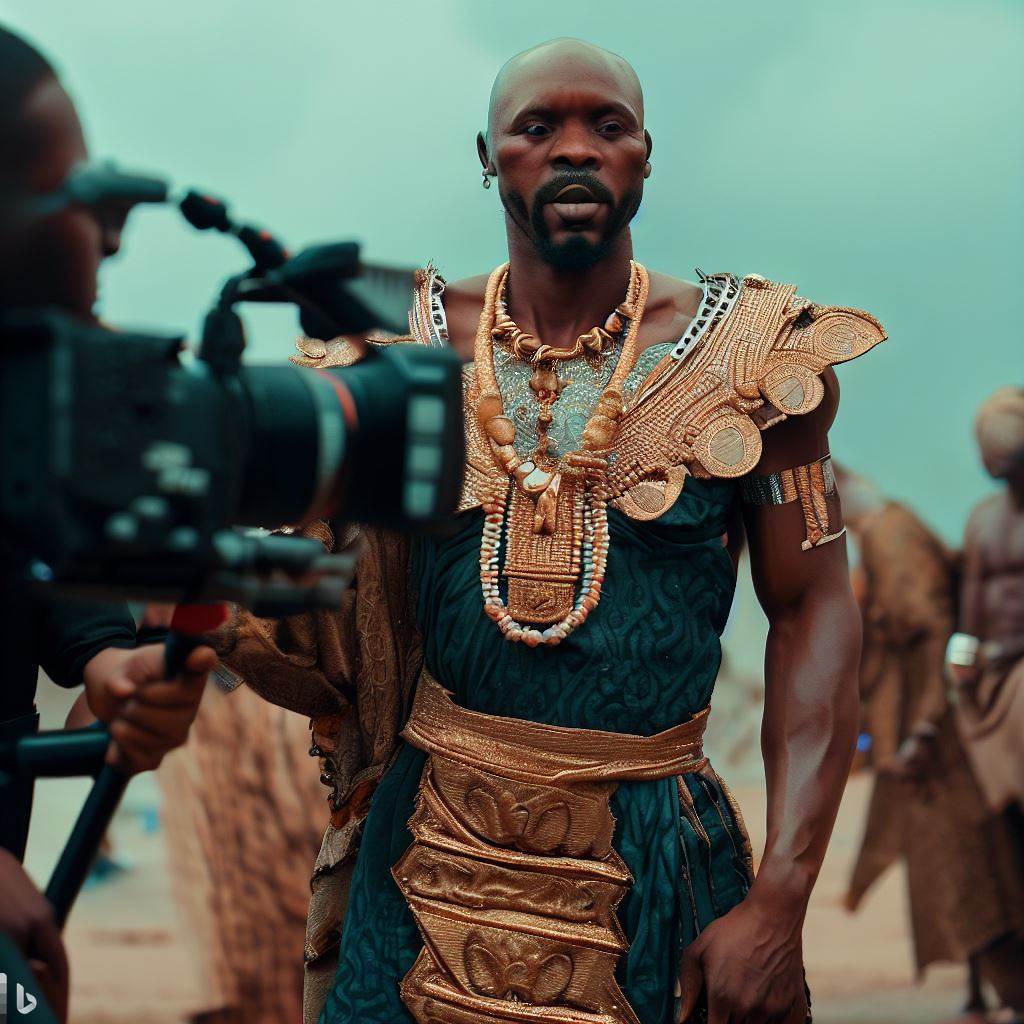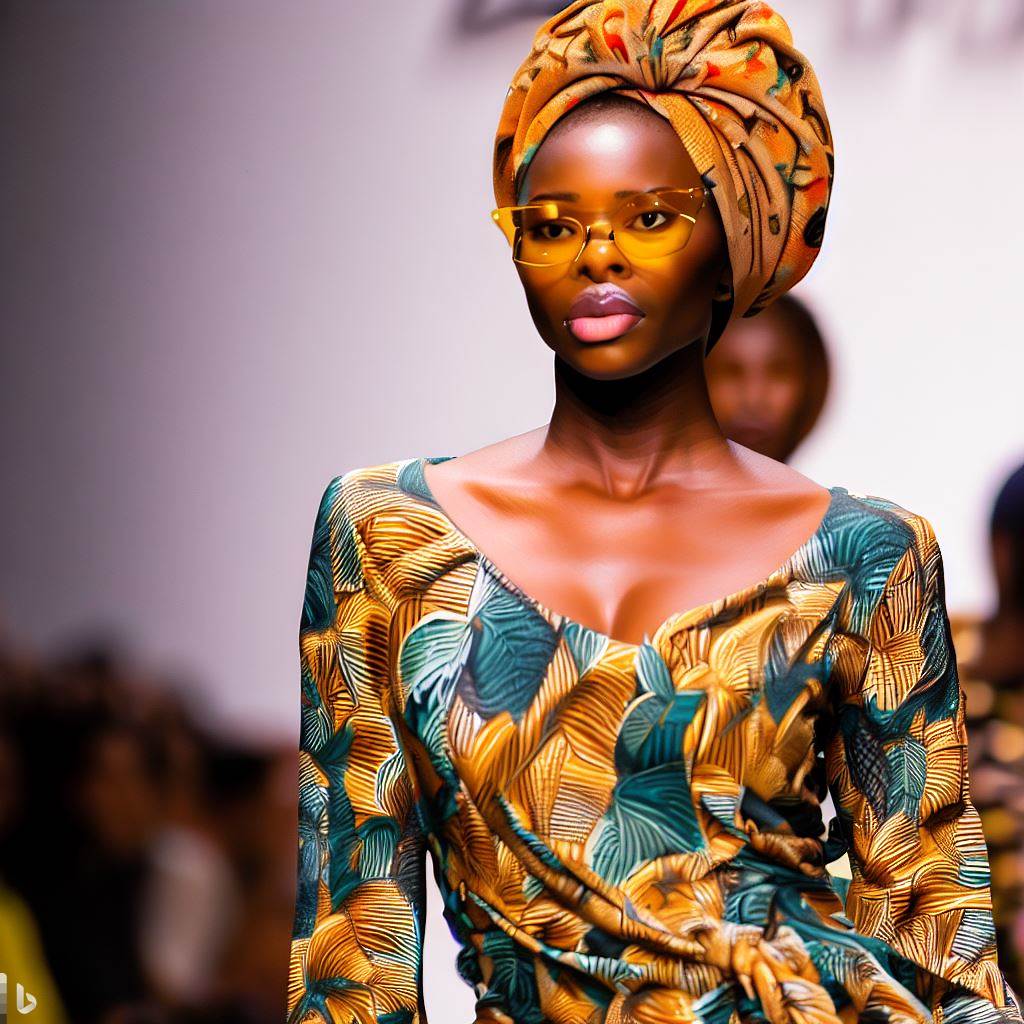Introduction
Globalization refers to the worldwide integration and interdependence of cultures, economies, and societies.
Costume design in Nigeria involves the creation of traditional attire and outfits that reflect the country’s rich cultural heritage.
Defining Globalization:
Globalization is the process of increased interconnectedness and interdependence among nations, cultures, and economies worldwide.
Costume Design in Nigeria:
- Rich Cultural Heritage: Nigeria boasts diverse ethnic groups, each with its unique traditions and costumes.
- Traditional Attire: Traditional clothing varies widely across regions, showcasing vibrant fabrics, colors, and designs.
- Influence of Globalization: Globalization has significantly impacted costume design in Nigeria in the following ways.
- Westernization: Western fashion trends have influenced Nigerian attire, leading to fusion styles.
- Textile Trade: Increased access to global textiles has expanded design options for Nigerian costume makers.
- Media and Pop Culture: Exposure to international media has inspired contemporary costume design.
- Economic Impact: The costume design industry has seen growth due to globalization, with opportunities for exports and cultural exchange.
- Challenges: However, globalization also poses challenges, such as the potential loss of traditional craftsmanship and cultural authenticity.
Understanding globalization’s effects on costume design in Nigeria highlights both its positive contributions and the need to preserve cultural identities in an increasingly interconnected world.
Historical background of Nigerian costume design
Traditional Nigerian costumes
Nigerian costume design has a rich history rooted in traditional clothing worn by different ethnic groups.
These costumes reflect the diverse cultural heritage of Nigeria, with each group having its unique style and significance.
Traditional Nigerian costumes are not just clothing; they are a reflection of identity, social status, and cultural pride.
Influence of colonialism on Nigerian costume design
The arrival of colonialism in Nigeria had a significant impact on the country’s costume design.
- The colonial rule imposed Western clothing styles and fashion trends on Nigerians, leading to the decline of traditional costume designs.
- Many Nigerians started to adopt Western clothing, which was seen as modern and superior. This shift began to erode the once vibrant and diverse Nigerian costume culture.
- However, despite the influence of colonialism, some traditional Nigerian costume designs managed to survive.
- Certain occasions and ceremonies, such as weddings, festivals, and cultural celebrations, became opportunities for Nigerians to proudly showcase their traditional clothing.
- These events became a way for Nigerians to preserve their heritage and resist the complete assimilation of Western costume design.
The historical background of Nigerian costume design reveals the enduring spirit of cultural pride and resilience.
Despite the influence of colonialism and globalization, traditional Nigerian costumes have managed to survive and find relevance in the modern world.
They serve as a reminder of Nigeria’s rich cultural heritage, and their revival has brought about a renewed appreciation for Nigerian fashion on a global scale.
Nigeria must balance tradition with contemporary influences to preserve and keep costume design culturally relevant in a globalized world.
Read: Fashion vs Film: Costume Design Careers in Nigeria
The impact of globalization on Nigerian costume design
In today’s globalized world, Nigerian costume design has been greatly influenced by various factors, resulting in significant changes and adaptations.
Introduction of Western fashion trends
- The globalization of fashion has led to the introduction of Western fashion trends in Nigeria.
- Nigerian designers have incorporated elements of Western fashion into traditional costume designs.
- Traditional Nigerian attire now commonly includes Western-style clothing and accessories.
- This fusion of styles has created a unique and modern Nigerian fashion aesthetic.
Influence of global fashion icons and celebrities
- Global fashion icons and celebrities have a significant influence on Nigerian costume design.
- Nigerian designers often look to these influential figures for inspiration and trendsetters.
- The styles and outfits worn by global fashion icons are emulated and recreated in Nigeria.
- This influence has helped shape and redefine Nigerian fashion, making it more global in its appeal.
Availability of global fashion brands in Nigeria
- The presence of global fashion brands in Nigeria has greatly impacted costume design.
- Nigerian consumers now have access to a wide range of international clothing brands.
- This availability has expanded the options for Nigerian designers and consumers alike.
- The presence of global brands has also fueled competition among local Nigerian designers.
Increased exposure to international costume design through media and the internet
- The rise of media and the internet has exposed Nigerians to international costume design.
- Nigerians now have access to fashion shows, magazines, and online platforms showcasing global designs.
- This exposure has broadened their knowledge of various costume design trends and styles.
- Nigerian designers are now able to incorporate international influences into their own creations.
In fact, globalization has had a profound impact on Nigerian costume design.
Western fashion, global icons, brands, and online exposure have transformed Nigerian fashion, blending local styles with global trends.
Today, Nigerian costume design reflects a fusion of traditional and Western styles, creating a unique and globally appealing aesthetic.
Read: Steps to Starting Your Costume Design Business in Nigeria
Challenges faced by Nigerian costume designers due to globalization
Globalization has brought numerous changes to Nigeria’s costume design industry.
While it has opened up new opportunities, it has also presented challenges that costume designers must navigate.
Here are some of the key challenges:
1. Balancing traditional Nigerian elements with global fashion trends
- Nigerian costume designers face the challenge of incorporating traditional elements in their designs while keeping up with global fashion trends.
- They must strike a delicate balance to ensure their creations reflect Nigerian culture while appealing to a global audience.
- Failure to strike this balance may lead to the loss of cultural identity or the rejection of their designs in the global market.
2. Competition with international fashion brands
- Globalization has brought Nigerian costume designers into direct competition with international fashion brands.
- These international brands have a wider reach, established reputation, and greater financial resources.
- As a result, Nigerian designers often struggle to gain recognition and compete with the marketing power of global fashion giants.
3. Pricing and affordability of globally influenced costume designs
- While global fashion trends influence Nigerian costume designs, the affordability of these designs becomes a challenge.
- Nigerian designers may face difficulties in sourcing materials that are in line with global trends at affordable prices.
- The cost of importing high-quality fabrics or accessories can increase the overall price of the costumes, making them less accessible to the local market.
In short, globalization has had both positive and negative impacts on the costume design industry in Nigeria.
While it has opened up opportunities for Nigerian designers to showcase their creativity on a global scale, it has also presented challenges.
Balancing tradition with global trends, competing with international brands, and pricing are challenges Nigerian costume designers face due to globalization.
Read: Costume Designers: Unsung Heroes of Nigeria’s Cinema
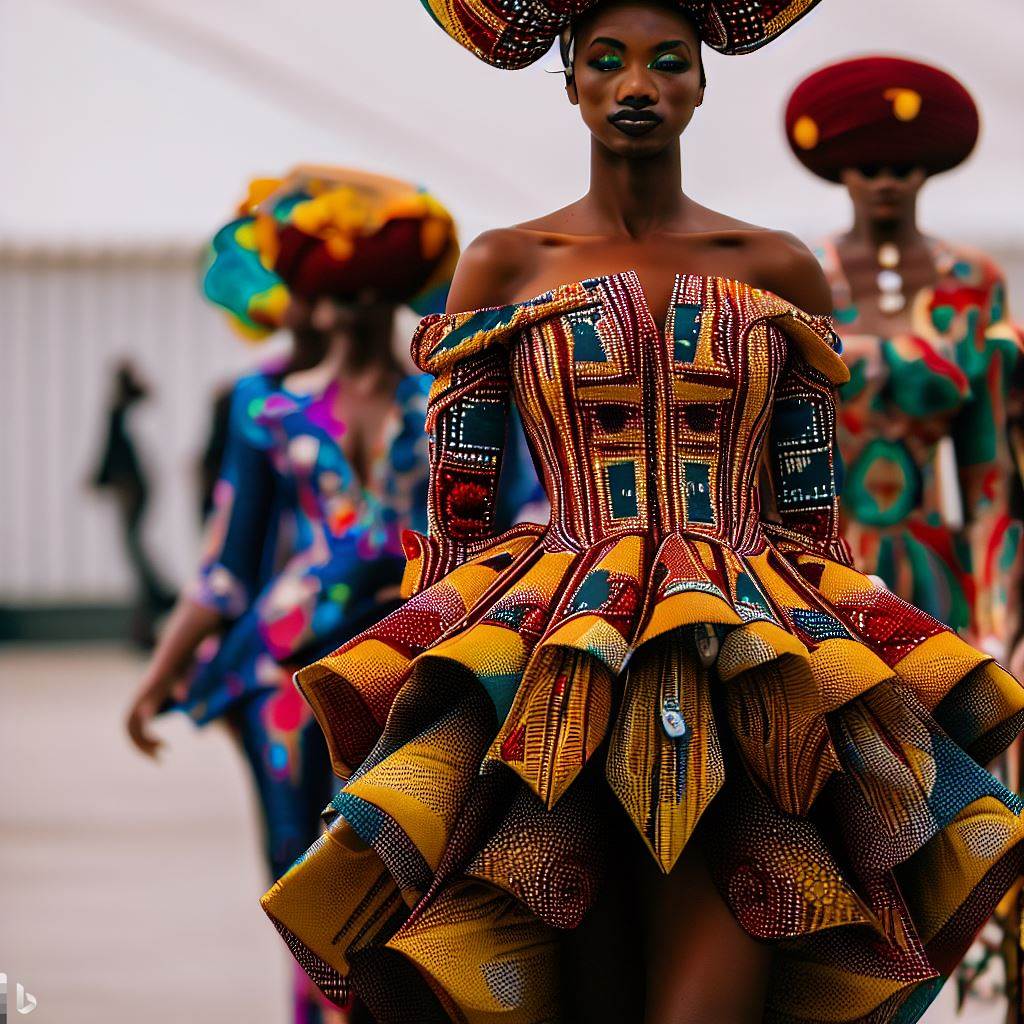
The positive outcomes of globalization on Nigerian costume design
Globalization has had a significant impact on Nigerian costume design, bringing numerous positive outcomes to the industry.
These results revitalize Nigerian traditional costumes, blend global and local fashion, and boost international recognition and demand for Nigerian designers.
Revitalization and promotion of Nigerian traditional costumes
- Through globalization, Nigerian traditional costumes have gained renewed interest and appreciation both locally and internationally.
- Designers have been inspired to incorporate traditional elements into contemporary designs, breathing new life into Nigerian costumes.
- The exposure to global markets has led to a resurgence of pride in Nigerian cultural heritage and traditional fashion.
- Globalization has created opportunities for traditional Nigerian costumes to be showcased on international runways, increasing their visibility and appeal.
Fusion of global and Nigerian fashion elements
- Globalization has facilitated cross-cultural exchanges, allowing Nigerian costume designers to infuse global fashion trends into their designs.
- The fusion of global and Nigerian fashion elements has resulted in unique, innovative designs that cater to diverse tastes.
- Designers can draw inspiration from various cultures and incorporate them into Nigerian costumes, creating a harmonious blend of styles.
- This fusion has attracted a wider audience and diversified the market for Nigerian costume designers.
Increased recognition and demand for Nigerian costume designers internationally
- Globalization has provided Nigerian costume designers with access to global markets and exposure to a broader customer base.
- Designers can showcase their talents and creations on international platforms, gaining recognition and acclaim from the international fashion community.
- Increased demand for Nigerian costume designers abroad has led to collaborations, partnerships, and invitations to prestigious fashion events.
- Nigerian designers have the opportunity to represent their country on the global stage, showcasing the richness and diversity of Nigerian costume design.
In essence, globalization has had a transformative impact on Nigerian costume design, resulting in several positive outcomes.
Reviving Nigerian traditional costumes, mixing global and local fashion, and boosting international recognition for costume designers are key outcomes.
As the world becomes more interconnected, Nigerian costume design continues to evolve and thrive, embracing both tradition and innovation.
Read: Innovation and Creativity: Keys to Nigerian Costume Design
Case studies of Nigerian costume designers embracing globalization
1. Successful designers who incorporate global influences
Nigeria is home to a vibrant and diverse fashion industry, and several costume designers have successfully embraced globalization, incorporating global influences into their designs.
These designers showcase the rich cultural heritage of Nigeria while also ensuring their designs appeal to a global audience.
One such designer is Lisa Folawiyo, whose eponymous label, Jewel by Lisa, has gained international recognition.
Folawiyo is known for her innovative use of traditional Nigerian fabrics such as Ankara, combining them with contemporary silhouettes and embellishments.
Her designs have been featured in prestigious fashion magazines and worn by celebrities around the world.
Another notable Nigerian designer is Deola Sagoe, who is renowned for her haute couture creations.
Sagoe expertly blends traditional Nigerian fabrics with modern aesthetics, creating unique and eye-catching designs.
Her work has been showcased on international runways and has garnered her accolades within the fashion industry.
Their innovative designs and recognition in the industry
Nigerian designers gain industry recognition with innovative designs for global appeal.
Their ability to embrace globalization has allowed them to reach a wider audience and showcase Nigerian fashion on a global stage.
- For instance, Lisa Folawiyo’s designs have been featured in prominent fashion weeks, including New York Fashion Week.
- Her ability to fuse traditional Nigerian fabrics with modern elements has earned her a loyal following both in Nigeria and abroad.
- She has successfully demonstrated that Nigerian costume design can compete on a global scale.
- Similarly, Deola Sagoe has showcased her designs at major fashion events such as the Mercedes-Benz Fashion Week in Johannesburg.
- Her exquisite craftsmanship, attention to detail, and incorporation of global trends have established her as a leading figure in Nigerian costume design.
- Sagoe’s success is a testament to the impact of globalization on the Nigerian fashion industry.
Basically, Nigerian costume designers have embraced globalization by incorporating global influences into their designs.
Through innovative creations and recognition within the industry, these designers have showcased the richness of Nigerian culture while appealing to a global audience.
These designers serve as inspirations for aspiring costume designers in Nigeria and demonstrate the positive impact of globalization on costume design in the country.
Conclusion
Globalization has had a significant impact on Nigerian costume design. It has brought in new ideas, techniques, and materials from around the world.
Nigerian designers have embraced these influences and incorporated them into their work.
However, there is a need for balance between global influences and the preservation of Nigerian identity. It is crucial to maintain the cultural heritage and traditional elements in costume design.
Nigerian designers should strive to create a unique and authentic aesthetic that represents their country.
This can be achieved by using traditional fabrics, motifs, and techniques in conjunction with modern influences.
By doing so, Nigerian costume designers can create garments that are both globally appealing and culturally meaningful.
It is important to ensure that globalization does not overshadow or erase Nigerian cultural identity.
Nigerian costume designers have the opportunity to showcase the vibrancy and diversity of their culture to the world.
By striking a balance between global and local influences, they can contribute to the ongoing dialogue of cultural exchange and appreciation.
In closing, globalization has brought immense opportunities and challenges to Nigerian costume design.
While it offers access to global trends and markets, it is crucial to maintain the essence of Nigerian identity in costume design.
Nigerian designers must continue to innovate, adapt, and express their unique cultural heritage through their work.

